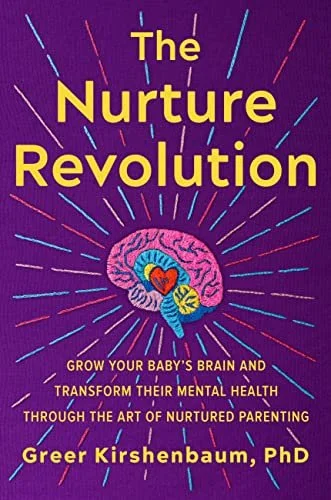The Nurture Revolution
Appropriate Age Range:
Adults and caregivers.
What this book is all about:
This book seeks to support parents to build secure, connected, and soothed children through nurture. The book uses evidenced-based neuroscience to illuminate how much need babies (classified as 0-3 years) have and how meeting their many needs, day and night, will lay the foundation for their positive mental health, independence, resilience, and all the other qualities our western culture seems to value but doesn't necessarily set children up to attain.
Why you might want to read it:
If you feel like other baby books are telling you things that don't align with what feels right to you such as "you're holding your baby too much" or "they need to learn how to self soothe [as an infant when they don't have the brain capacity or structure to do so yet]." Also, if a high level of nurturing makes you uncomfortable but you want to read the research that explains why the first three years are such a needy time for human children and how to support those needs while supporting yourself in a greater society that doesn't value the importance of co-regulation in the early years.
3 questions for you to ask yourself after reading it:
Have I bought into some of the mainstream ideas that teaching a baby "self-soothe" is possible without looking at the research that makes clear that children (and adults) are not able to self regulate until they have many many many experiences of external and then regulation to scaffold that development?
How might I be able to practice at least some of the nurturing interventions offered in this book?
What will be helpful to me in this intense time of need to support myself while giving so much to my child/baby?
Additional Notes:
This book is vital for new parents so that they can begin the parenting journey with science vs. messages of convenience and outdated myths ("you'll spoil your baby if you hold them all the time"- there is not possible way to spoil an infant). It can be guilt inducing for parents of older children who did not prioritize the intense level of nurture that is recommended by this book and can be rage inducing for parents of 0-3 year olds who want to give this level of nurture to their baby and the baby's brain but do not have the support structure to do so. Ie. limited/no maternity/paternity leave, expectations of a 40 hour work week schedule, never ending tasks, lack of other helpful adults to share responsibility in the more needy times, and needed quiet time to practice our own reflection and regulation.

